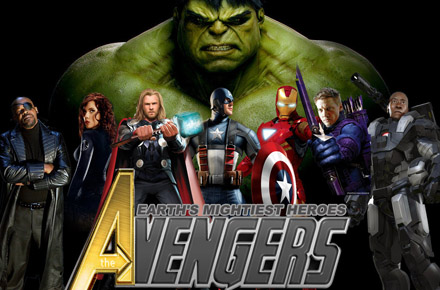Defending Science Fiction
One of the most common misconceptions is that Sci-Fi is for children. While the genre is peppered with phasers and space ships, underneath it all lies so much more, allowing the reader to ponder “What if?”

As a nerd, I have found myself constantly battling with the public opinion of the Science-Fiction genre – more so since deciding I want to be an author who writes within that genre. It seems to be all but impossible to ask people (ordinary folks, at least) to take you seriously after admitting you have a predilection towards a genre that sets its sights to the future instead of the here and now.
One of the most common misconceptions is that Sci-Fi is “for children”. As much as I hate to say it, we Nerds have perhaps our two favorite sci-fi properties to blame for this: Star Wars and Star Trek.

With the creation of these properties (and others like them), the public has been led to assume that Science-Fiction is synonymous with lasers, phasers, and massive space ships. While sci-fi includes such staples, it is also encompasses so much more. Whether the public likes to admit it, Science-Fiction is a genre to take seriously.
Let’s look at some of the areas of value our favorite genre has to offer – not just to individuals, but to society as a whole.
Inciting Cultural Shifts

For better or for worse, works of Sci-Fi often usher new and unheard of thoughts or ideas into our cultures – cultures that tend to limit the conceivable and the attainable, marking all else as whimsy, fantasy, or signs of delusion.
However, consider where we would be if we never had the privilege of forward thinking minds who hypothesized things such as prosthetic limbs, artificial intelligence, and so forth.
Even more impressive is the fact that (more often than not) such ideas were written about decades before they could be realized – sometimes as far back as 100 years!
As an example, consider Aldous Huxley’s A Brave New World. Huxley’s fifth novel envisioned a world in which reproduction was regulated and controlled in the alleged interest of the common good of our species. It also predicted the emergence of “sleep learning”, which would eradicate the necessity for schools.
While these two forces work in tandem to entrap mankind rather than benefit it, one simply has to pay attention to movements in the scientific community that seek to make such concepts become realty.
Such ideas have been repeated in more contemporary works of fiction. Consider the films Gattaca and The Matrix, which deal with regulated reproduction and sleep learning, respectively. If one does a google search on either topic, one will be able to read information on real life research into both areas – especially controlled reproduction/genetic engineering.
Important Commentaries on Society

The science-fiction genre is, perhaps, the best venue for authors with something to say. Whether they concern politics, or cultural and sociological trends, very rarely will a book or film be made that doesn’t raise awareness of particular issues.
Going back to A Brave New World (which many regard as the first dystopian novel) Huxley foresaw where his advanced successors’ reliance on technology, if abused, could overrun our societies and cause great harm for mankind.
Other fantastic examples of such warning cries can be found in book such as Player Piano, by Kurt Vonnegut, and Do Androids Dream of Electric Sheep, by Philip K. Dick. Both books tackle a similar concern (the emergence of robotic intelligence), yet they do so in drastically different ways – approaching the issue from different angles.
In Player Piano, for instance, Vonnegut envisions a world in which humans have allowed themselves to be replaced by robotic workforces, which in turn leads to the devaluing of human life for the sake of convenience for an elite group of supervisors working for a company that serves as a thinly veiled allusion to General Electric, where the author once worked.
Out of this simple premise, Vonnegut leaps to the logical conflict to be born out of such a situation: There is a removal of a Middle Class, leaving the well-to-do Upper Class in constant conflict with the members of the Lower Class, all of whom had their livelihoods (and identities) taken from them by machines.
In creating such a world, Vonnegut makes a commentary on the effects on society once robots and machines begin taking jobs from people who depend on them in order to live.
With Do Androids Dream of Electric Sheep, Philip K. Dick took a similar subject (the emergence of machines, but machines capable of exercising their vast artificial intelligence), and decided to look not only at how this rise of androids might affect human life, but he went one step further.
The main theme behind Dick’s book is a simple answer with an impossibly difficult answer: What makes man differ from an intelligent machine? Dick posits that empathy is the missing ingredient, yet by the end of the story we are left unsure if androids had become advanced enough to share that trait. The theme was handled with much more attention in the film adaptation, Blade Runner, as evidenced by the extremely emotional speech the final android delivers before he expires.
Fostering of Outside-The-Box Thinking
Simply put, science-fiction should earn more than the respect is has been given due to its ability to spark imaginative ideas in those who consume it. Rocket ships, space travel, curing diseases… the list of benefits goes on into near infinity, and we likely wouldn’t have considered half of them were it not for the precognitive curiosity past science-fiction pioneers pulled from their heads and put into their books.
While the genre is peppered with lasers, phasers, and massive space ships, underneath it all lies so much more. We are taught to examine traditions and ideas with more scrutiny, and we are encouraged to continue to exercise a fundamental human right that oft goes oppressed: The ability to ponder “What if?”
Jordan Siron is a blogger and freelance writer living in Orlando, FL. He encourages fans of science-fiction to hold tight, and to save the date when others begin to take it seriously.










